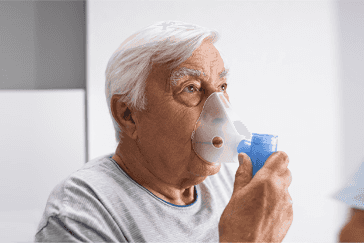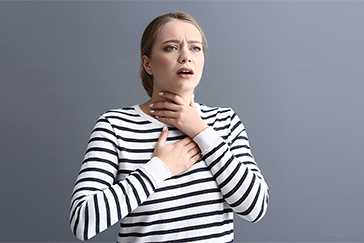
Expert Physiotherapy at Home
Certified physiotherapists visit you at home to provide focused, one-on-one care tailored to your needs. With no travel or waiting rooms, recovery happens in a setting that is comfortable, familiar, and built around your convenience.
Personalised Recovery Programmes
Every treatment plan is designed to suit your condition, goals, and pace. Our physiotherapists follow structured, evolving protocols to ensure consistent progress, with each session aligned to deliver meaningful results.
Trusted Physiotherapists. Real Results.
Our team comprises experienced, background-verified physiotherapists trusted by thousands of families. With a strong focus on safety, reliability, and clinical outcomes, we make recovery at home both effective and reassuring
Patient Testimonials
Portea Physiotherapists for Home Visits
Meet some of our experienced and dedicated healthcare professionals

Dr. Lokesh G
Physiotherapist
Specializations
Experienced in Neurological rehabilitation, Orthopaedic physiotherapy, and Paediatric care
Delivers structured, high-impact treatment plans across neuro, ortho, and paediatrics—ensuring safety, comfort, and measurable recovery at every stage.

Dr. Mohammed Sarwar
Physiotherapist
Specializations
Experienced in Neurological rehabilitation, Adult physiotherapy, and Paediatric care
Combines deep clinical expertise with a compassionate approach, supporting both adults and children through neuro and physical rehabilitation that promotes long-term independence and recovery.

Dr. Nelapati Divya
Physiotherapist
Specializations
Skilled in Orthopaedic rehabilitation, Manual therapy techniques, and Paediatric physiotherapy
Brings a personalised, hands-on approach to healing—combining structural expertise with paediatric sensitivity to restore movement, relieve pain, and improve everyday function.

Dr. Naveen V
Physiotherapist
Specializations
Trained in Pain management, Cardiac and Orthopaedic rehabilitation, Neurological care, and Neural tissue mobilisation
Brings clinical precision and empathy together—designing science-backed recovery protocols for pain relief, nerve mobilisation, and cardio-neuro-ortho rehabilitation across all age groups

Dr. Miloni Savla
Physiotherapist
Specializations
Holds an MPT in Orthopaedics with a focus on Musculoskeletal rehabilitation and strength recovery
Delivers focused, movement-oriented therapy grounded in orthopaedic science—helping patients rebuild strength, restore function, and return to daily life with confidence
Other Cities
Physiotherapy Treatments

emphysema definition
As per the Emphysema definition, emphysema is a chronic and progressive lung condition, where the lungs have an abnormal accumulation of air due to enlargement and destruction of the lung’s alveoli or tiny air sacs leading to the formation of scar tissue.
what is emphysema?
Emphysema in simple terms is one of the types of COPD that involve damage to alveoli or the tiny air sacs located in the lungs, making it difficult to breathe. Emphysema is an incurable disease and once caught it will last a lifetime. It is also a progressive disease of the lungs, meaning it can spread to other parts of the lungs. Emphysema leads to shortness of breath because of inflammation of the air sacs in the lung; it also causes partial or complete damage to the lung tissues.
These Might be of Interest
emphysema diagnosis:
The different types of tests used by doctors in the diagnosis of emphysema are lung function tests measuring the lung’s capacity, imaging tests like – chest X ray or CT scan and arterial blood – gas analysis for assessing oxygen exchange.
emphysema stages
The emphysema stages are categorized according to the forced expiratory volume in 1 second (FEV1). And as such the 4 stages of emphysema as per the above measurement are;
- Very mild or Stage 1: FEV1 is about 80 percent of normal
- Moderate or Stage 2: FEV1 is between 50 and 80 percent of normal
- Severe or Stage 3: FEV1 is between 30 and 50 percent of normal
- Very severe or Stage 4: FEV1 is either lower or same as Stage 3 and with low blood oxygen levels
The stages of emphysema are only indicative of the severity of the disease and do not hold any value in predicting the life expectancy of a patient.
what causes emphysema?
There are several primary and secondary emphysema causes. The two main reasons attributed to emphysema are smoking and AAT Deficiency.
Smoking – Smoking cigarettes or being exposed to other form dangerous gases and smoke for a long term is regarded as one of the prime Emphysema causes.
AAT deficiency: Alpha-1 antitrypsin or AAT is a natural protein found in our blood. This protein protects the normal tissue from being damaged by the white blood cells. Deficiency of AAT protein is also counted as one of major emphysema causes. It makes a person susceptible to emphysema COPD irrespective of the fact that the person smokes or not.
Apart from the above two reason other contributing factors are:
- Low body weight
- Air pollution
- Occupational dust – mineral dust or cotton dust
Over exposure to chemicals, coal, grains, isocyanatesand cadmium- Childhood respiratory disorders
what are emphysema symptoms
The most common symptoms of emphysema are shortness of breath and chronic cough appearing in the early stages of the diseases. Other emphysema symptoms are;
- Frequent lung infections
- Heavy mucus production
- Wheezing
- Loss of appetite and weight loss
- Fatigue
- Cyanosis
- Sleep disorders
- Morning headaches
know types of emphysema
Emphysema is mainly classified into three groups based on the site of origin of the disease. The three major emphysema types are – Centrilobular, Panlobular
Centrilobular
Centrilobular also referred to as centriacinar primarily affects the upper lobes of the lungs. This form of emphysema, the damage to the respiratory bronchioles starts from the center of the lobule.
Panlobular
Panlobular also referred to as panacinar, the damage or destruction of the alveoli occurs in all the alveoli simultaneously.
Paraseptal
This form of emphysema originates in the back part of the lungs and has the capacity to progress into a bullous.
how can we help?
In severe cases of emphysema the symptoms can be worsened when the patient is exposed to air pollution and dust, so it is advisable for them to stay indoors for a safe environment. Even healthcare should be given to them within the comfort of the home, to avoid unnecessary stress to the patient. Portea’s highly appreciated nursing service brings the best treatment and management of emphysema at your doorstep. Moreover the nursing service is available 24/7 and is just a call way. So if you are in need of a reliable, economic and quality nursing service for emphysema, just give us a call and our team of nurses and doctors would provide customised care plan to the patient.
emphysema treatment
There is absolutely no emphysema cure currently. Though there is no emphysema cure, there are numerous types of emphysema treatment offered to an emphysema patient to control and manage their symptoms for a better quality of life and control over the disease. If emphysema treatment is not sought, then the symptoms will rapidly progress into a severe form making normal life extremely difficult. The various emphysema treatments offered involve medications, inhalers, respiratory assistance and surgery.
Medication for Emphysema
Bronchodilators are the most common medications prescribed to an emphysema COPD patient.
Oxygen Therapy for Emphysema
This therapy is administered with the progression of the disease
Surgery for Emphysema
Surgery is a restricted procedure and only recommended for patients showing no control of symptoms with regular emphysema treatment. Patients suffering from severe emphysema undergo surgery to reduce the lung volume or lung transplant. The lung volume reduction surgery removes small pieces of the damaged emphysematous lung tissue. Lung transplant is the partial or complete removal of damaged lung with a healthy lung. This procedure can improve the quality of life of the patient but, not increase the life-expectancy.
Lifelong drug therapy
This therapy is crucial to the success of lung transplant as it prevents the immune system from rejecting the new tissue, which will completely destroy the purpose of
Pulmonary rehabilitation and lifestyle management
This program is designed to provide care for patients suffering from emphysema disease and aims to help the patients in improving their life by quitting smoking, following a nutritious diet and daily exercise.
emphysema treatment guidelines
The management and emphysema treatment should be given as per the treatment guidelines set up by experts after thorough research in the treatment of emphysema disease. These emphysema treatment guidelines are;
- Quit smoking cigarettes
- Physician intervention
- Pharmacologic therapy for emphysema
- Oxygen therapy
- Vaccination for flu and pneumonia
Content is medically reviewed by:
Shruti Bangera, Masters In Neurological Physiotherapy, Senior Physiotherapist & SME, Portea
References
Doctor Consultation
Nursing
Physiotherapy
Trained Attendant
Elder Care
Mother & Baby Care
Lab Tests
Medical Equipment
Speciality Pharma
Critical Care








